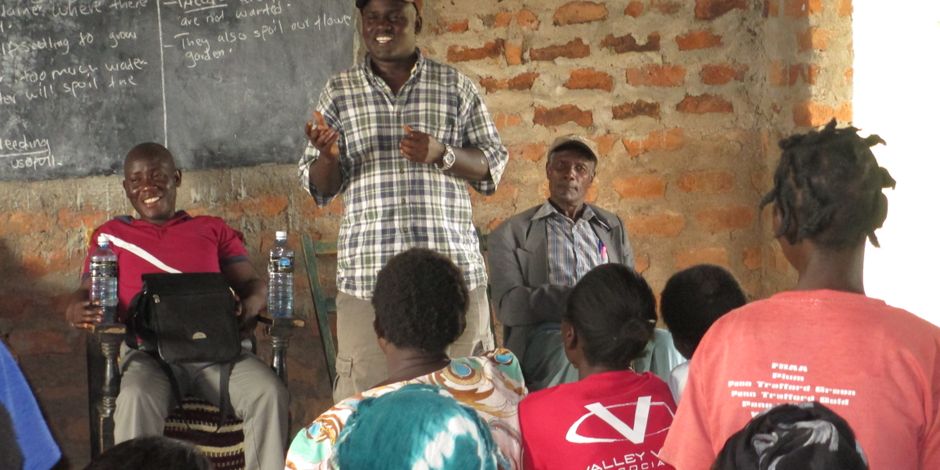EcoSan Toilets for Miruya Primary School in Kenya

The goal of the project is to construct 7 EcoSan (4 Arborloo and 3 Fossa alterna) toilets for Miruya Primary School in Kenya. When I visited the school in summer 2013, it had no toilets. The kids used the bush next to the playground for toilet purposes. This makes the children more susceptible to cholera.
Arborloo is the compost toilet that eventually becomes a tree. A shallow pit is dug and a concrete slab and easily movable superstructure is placed on top. A mixture of soil and ash is added after each use, until the pit is nearly full – this may take 4 – 9 months. Thereafter, both the slab and superstructure are moved to another pit. A thick layer of soil is added to the full pit and a young tree is planted in the soil. Tree planting may be delayed until the rains begin. The tree grows utilizing the compost to produce fruit. After a few years the result is an orchard producing fruit with a good nutrition and economic value. The compost is never physically handled and it requires minimal behavior change in relation to using a traditional pit latrine.
Fossa alterna is the alternating pit compost toilet. Two shallow pits – A and B are dug next to each other; housed within the same brick walled structure. Pit A is used whilst compost is maturing in pit B. When pit A is full, the slab is moved to the pit B for use. Pit A is then covered with soil to compost until pit B is full. Pit A is emptied of compost and used again. The compost is either stored in sacks for future use or dug into the garden to increase soil fertility. This alternate use continues almost indefinitely. As in Arborloo, a dry mixture of soil and ash is added after each use, facilitating the aerobic decomposition, reduction of odors and discourage flies. This differs from the traditional toilet pit, which is saturated, anaerobic and smelly. To ensure sufficient reduction in pathogens, the compost is processed for at least 12 or 6–9 months in warmer climates, before it is spread on the garden.